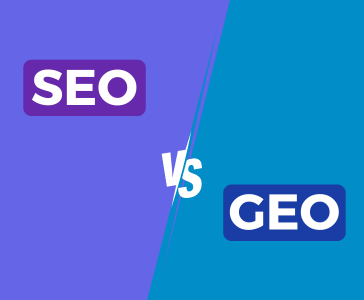Alright, let’s talk about something that is completely shaking up the digital marketing landscape: Generative Engine Optimization (GEO).
Now, if you’re already familiar with Search Engine Optimization (SEO) (you know, the thing we’ve all been obsessing over to get ranked on Google), you’re gonna want to pay attention. Because GEO is coming in hot—and it’s changing how people find your content.
Let’s break it all down in a way that makes sense. No jargon, no fluff—just the good stuff.
First, What the Heck is SEO?
So, SEO is basically the OG of digital visibility. It’s all about making sure your website shows up when people type something into Google, Bing, or any other search engine. The higher you rank, the better your chances of getting clicks.
How Do You Win at SEO?
✔ Keywords – Sprinkling in the words people actually search for
✔ Backlinks – Getting other sites to link to you (think of it as a digital popularity contest)
✔ User Experience (UX) – Making sure your site doesn’t look like it was built in 2005
✔ Quality Content – Giving people something actually worth reading
SEO is still super important, but AI is changing the game. And that’s where GEO steps in.
Wait, So What is GEO?
Think of Generative Engine Optimization (GEO) as SEO’s cool younger cousin. Instead of optimizing your site for Google rankings, GEO is all about making sure AI-powered tools (like ChatGPT, Google’s AI Overviews, and Perplexity) recognize and reference your content when people ask questions.
Let’s say someone asks ChatGPT about the best running shoes. If your brand has been optimized for GEO, boom—your content might show up in the response.
How Do You Win at GEO?
✔ Create Authoritative Content – AI loves trustworthy sources
✔ Get Your Brand Mentioned Everywhere – AI references what it sees the most
✔ Use Structured Data – Helps AI understand your content
✔ Make Sure AI Can Index Your Stuff – Just like Google crawlers, AI tools need access
So yeah, GEO is kinda like SEO—but for the AI generation.
How SEO & GEO Are Basically the Same Thing (But Also Totally Different)
At the end of the day, both SEO and GEO help people find your content. The difference? One is optimized for search engines, the other for AI-generated responses.
Here’s a side-by-side look:
| Feature | SEO (Search Engine Optimization) | GEO (Generative Engine Optimization) |
| Goal | Rank higher on Google and Bing | Get referenced in AI-generated answers |
| Target Platforms | Search engines | AI tools like ChatGPT, Perplexity, & Google AI Overviews |
| Key Tactics | Keywords, backlinks, page speed | Brand mentions, AI-trainable content, structured data |
| Content Type | Blog posts, landing pages, ecommerce | Knowledge graphs, authority-based content, structured data |
| Ranking Factors | Search algorithms (Google updates, etc.) | AI trust signals & brand credibility |
| Challenges | Algorithm changes, SEO competition | Blog posts, landing pages, e-commerce |
See what I mean? Same goal—different playbook.
The Evolution from SEO to GEO
This graph shows how SEO has ruled for years, but GEO is starting to climb up as AI-powered search tools become more popular.

How SEO and GEO Work Together
This next chart shows that SEO and GEO aren’t competing—they actually complement each other. If you’re doing one, you should definitely be doing the other.

Ready to Get Ahead in the AI-Driven Search Game?
SEO got us here, but GEO is where we’re headed. AI-powered search isn’t slowing down, and if you’re not optimizing for it, you’re leaving serious visibility on the table.
Don’t get left behind in 2025’s fast-changing digital landscape. Start optimizing your content for both search engines and AI-generated results today.
Need help figuring out where to start? Linx, a top-tier New York marketing agency, is here to help you navigate the shift. Let’s future-proof your brand and make sure your content gets the attention it deserves—no matter how people are searching.


